
Fortune News | Sep 11,2020
Nov 19 , 2022.
The rounds of talks to end wars in Ethiopia held in Pretoria, South Africa, and Nairobi, Kenya, have outcomes exceeding the expectations of many, from naysayers to pundits and from mediators to the negotiators themselves. A formal ceasefire was agreed, hopefully leading to further negotiations and ushering in a durable peace. The guns remained silent since the first week of November this year, ironically marking the second anniversary of the civil war in the Tigray Regional State.
Last week, international aid and humanitarian organisations resumed delivering life-saving emergency assistance to a population deprived of essential services for a long time. It is a promising beginning that is likely to continue with the resumptions of essential services like telecom, electricity, banking and transport for the civilian population. Understandably, the adversaries need to sort out issues to follow through with the deals made in Pretoria and Nairobi.
The withdrawal and departure of forces not under the command of the federal army and the “concurrent” disarmament of armed forces in Tigray cause anxiety for many who wish to see Ethiopia close the dark chapter of its contemporary history. Implementing these deals would have been less worrisome had it not been for the presence on the ground of Eritrean forces, whose government is not a party to the two accords.
Addis Abeba has taken the burden of ensuring Eritrean forces leave Ethiopia’s territory while assuming the duty to safeguard the country’s borders in the north and the population there from foreign incursions. Meqelle will have to disarm its forces and eventually see them demobilise, with the possibility some of them will be redeployed into the federal army and law enforcement forces. A monitoring team comprising representatives from the African Union (AU) and IGAD will be deployed this week to monitor and verify the implementation of these agreements.
Judging by several accords warring parties have made from Colombia to Sierra Leone and DR Congo to Guatemala, implementing agreements announced after peace talks with global attention gazing on negotiators would not be a ride in a park. Charging one step ahead only to slide back two steps will be most likely.
However, despite the nitty-gritty over implementations, the political leaderships in Addis Abeba and Meqelle have made an irreversible concession. They have acknowledged that the differences that pushed them to regrettably avoidable militarised conflicts were inherently political, hence could only be addressed through a political process. The deals made in the two African capitals paved the way for talks to begin on reinstating the Tigray Regional State into the federal political institutions, including the legislative houses.
The guns may have gone quiet, the wars may have ended, and the toxic rhetoric opposing forces make demonising each other might have sobered. However, their legacy leaves behind the scars of loss, suffering and pain. The United Nations estimated over 800,000 people perished during the two-year war. This can be a highly conservative estimate; considering combatants from all sides, casualties in death exceed a million. Millions remain displaced from their homes in Tigray and the adjoining regional states, waiting for calmer times to return to their places as tens of millions are hoping to receive emergency humanitarian provisions.
The task of rebuilding, rehabilitating and resettling millions of people will not be limited to Ethiopia’s leaders. The international community and development partners will have to resume their vital role in providing loans and grants, without which Ethiopia’s economy is hardly resilient.
The most demanding task of returning the country from the brink goes beyond rehabilitation and economic recovery. It would mean foolhardy to disagree with UN Secretary-General Anthony Guterres’ remarks that the “inflammatory rhetoric and ethnic profiling are tearing apart the country’s social fabric.” The damage the war in the north and the ongoing militarised conflicts in the southern and western parts have done to the social fabric of society is undoubtedly profound. The work to restore the wrecked social cohesion is no less arduous.
Social cohesion is disrupted in polarised societies emerging from brutal and traumatic conflicts. Collective insecurity compels communities to address sources of insecurities while provoking opponents to respond similarly. It is a circular journey fuelling retaliation and retributions. Breaking out of this cycle requires the commitment and determination of many to reestablish trust in shared systems, laws and institutions.
Achieving social cohesion where a political culture of denying multiculturalism reaches a hegemonic level is unlikely. In diverse polities such as Ethiopia, a singular drive to impose a centric view of nation-building not only undermines social cohesion but which results from the emergence of a shared vision for a plural society. It may lead to perpetual conflicts. According to Fletcher Cox and Timothy Sisk, professors of political science and international studies, the key challenge for nation-building is articulating a vision and a set of shareable values for a plural or multicultural society.
They believe advanced cohesive national identities emerge within culturally specific contexts based on shared histories and sets of common values. But they warn a long evolution does not come easily or quickly and is hardly transferable to societies where exclusive views of nationalism tend to polarise society from within.
Ethiopia is one of the few civilisation states that survived the layers of time, along with Japan, India, Iran and China. Nonetheless, the exclusive views on its nationalism led to recurrent conflicts and wars through the centuries until the grand political settlement in the early 1990s. It would also be wise to acknowledge the historical mistake the student movement generation committed by excluding political and social forces with a nationalist worldview when culminating the settlement into a multicultural constitution ratified in the mid-1990s.
It should be interesting to note that the warring parties whose delegates negotiated in Pretoria and Nairobi have come full circle to affirm that their political scuffle could have been addressed using the existing constitutional tools and the order it installed as a point of departure.
It has been evident that debasing the constitutional order would undermine the existential interests of both Addis Abeba and Meqelle. Hence their respective declarations of fidelity to the constitution asserting a single federal army with the right to be deployed in any part of the country. The concession by Meqelle to disarm forces under its command comes from such sober realisation, and Addis Abeba wisely acknowledges its constitutional duty to protect the population from harm. Both have a long way to walk their talks, though.
This vital convergence in accepting the constitution and its order should help not only the protagonists locked in gruesome wars in the north. Political and military leaders waging a resurgent rebellion in other parts of the country may take a cue from this. Coming back to the negotiating table and demanding constitutionalism in its letter and intent can spare a lot of suffering and save too many lives from perishing needlessly.
It is possible to have public policies designed to restore society’s faith in the impartiality and autonomous functions of constitutional institutions. The wars are primarily the result of the trust deficit various groups harbour on the integrity of federal legislative houses, the judiciaries, the public media, law enforcement agencies and the national electoral agency. The midwives of the constitutional order have themselves to blame for their perfidy of the constitution and the eventual erosion of public confidence in its institutions. An indispensable beginning in the long journey of achieving social cohesion can be to restore faith in them.
PUBLISHED ON
Nov 19,2022 [ VOL
23 , NO
1177]

Fortune News | Sep 11,2020
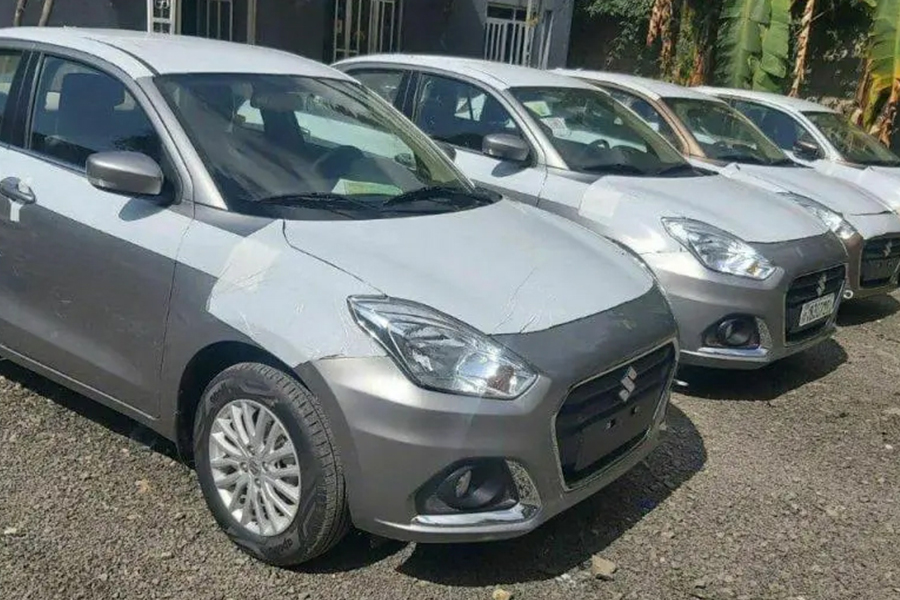
Featured | Sep 10,2022

Radar | May 21,2022

Viewpoints | Jun 27,2020
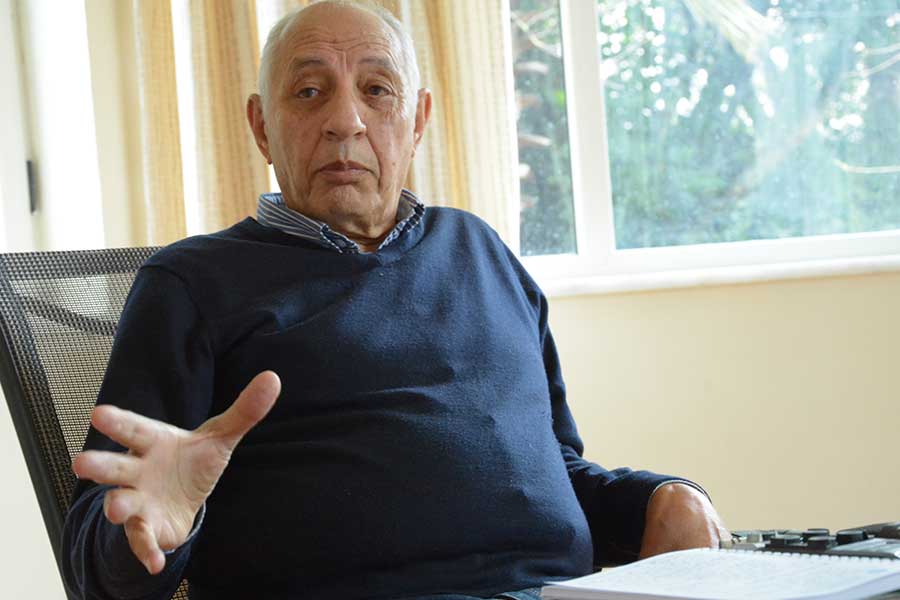
Exclusive Interviews | Aug 10,2019
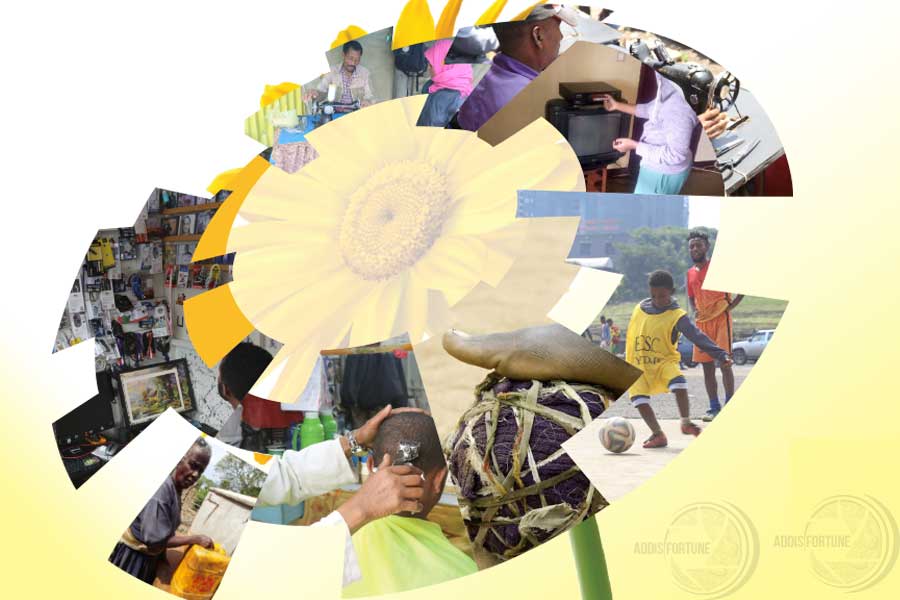
Fortune News | Sep 08,2019
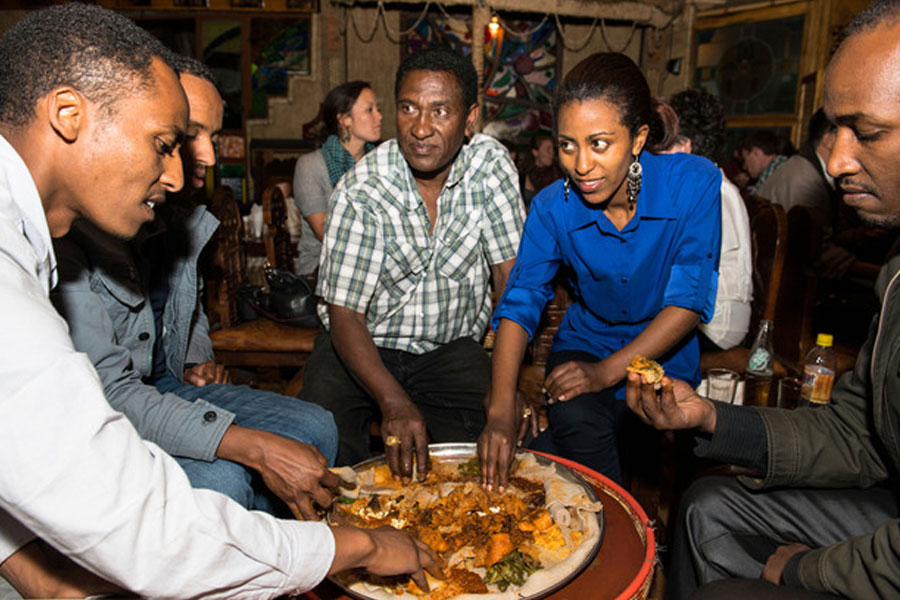
View From Arada | Feb 10,2024

Fortune News | Nov 27,2021
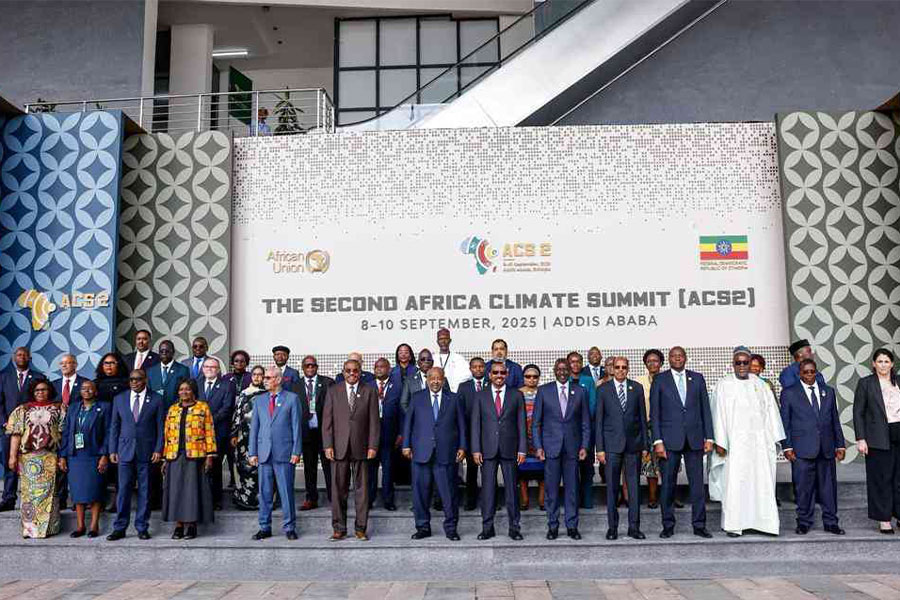
Fortune News | Sep 21,2025

Sunday with Eden | Jul 08,2023

Photo Gallery | 174589 Views | May 06,2019

Photo Gallery | 164817 Views | Apr 26,2019

Photo Gallery | 155011 Views | Oct 06,2021

My Opinion | 136695 Views | Aug 14,2021

Dec 22 , 2024 . By TIZITA SHEWAFERAW
Charged with transforming colossal state-owned enterprises into modern and competitiv...

Aug 18 , 2024 . By AKSAH ITALO
Although predictable Yonas Zerihun's job in the ride-hailing service is not immune to...

Jul 28 , 2024 . By TIZITA SHEWAFERAW
Unhabitual, perhaps too many, Samuel Gebreyohannes, 38, used to occasionally enjoy a couple of beers at breakfast. However, he recently swit...

Jul 13 , 2024 . By AKSAH ITALO
Investors who rely on tractors, trucks, and field vehicles for commuting, transporting commodities, and f...

Oct 12 , 2025
Tomato prices in Addis Abeba have surged to unprecedented levels, with retail stands charging between 85 Br and 140 Br a kilo, nearly triple...

Oct 12 , 2025 . By BEZAWIT HULUAGER
A sweeping change in the vehicle licensing system has tilted the scales in favour of electric vehicle (EV...

A simmering dispute between the legal profession and the federal government is nearing a breaking point,...

Oct 12 , 2025 . By NAHOM AYELE
A violent storm that ripped through the flower belt of Bishoftu (Debreziet), 45Km east of the capital, in...